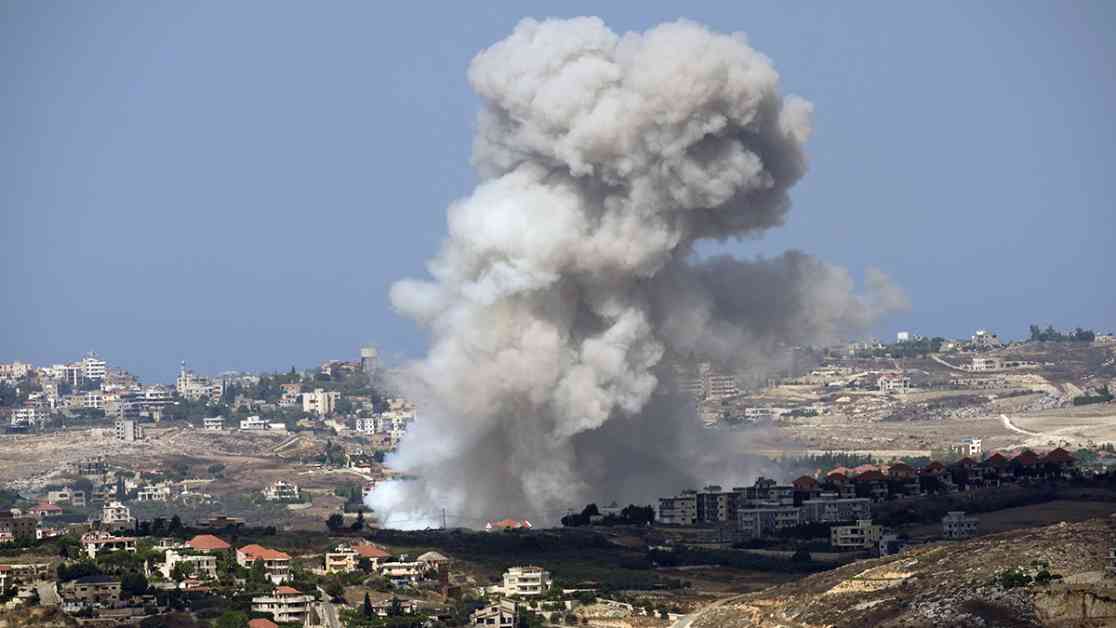Israeli airstrikes in Lebanon on Monday resulted in the deaths of over 490 people, including more than 90 women and children, marking the deadliest conflict since the 2006 Israel-Hezbollah war. The Israeli military issued warnings for residents in southern and eastern Lebanon to evacuate in preparation for an escalating air campaign against Hezbollah.
Following the strikes, thousands of Lebanese fled from the south, causing significant traffic jams on the main highway leading to Beirut, marking the largest exodus since 2006. Lebanon’s health ministry reported that the airstrikes had killed 492 individuals, including 35 children and 58 women, and injured 1,645 others. The country was still reeling from a previous deadly attack on communication devices the week before.
Israeli Prime Minister Benjamin Netanyahu urged Lebanese civilians to heed evacuation warnings and assured them that they could return home safely after the operation was completed. The Israeli military expressed its determination to push Hezbollah forces away from Lebanon’s border with Israel, emphasizing that it would take necessary actions to eliminate threats posed by the group.
Israeli military spokesman, Rear Adm. Daniel Hagari, stated that the airstrikes had caused significant damage to Hezbollah’s infrastructure and weaponry. The operation targeted multiple Hezbollah locations, destroying various types of missiles, rockets, and drones. Hagari warned that Israel was fully prepared to launch a ground invasion if required to achieve its mission of neutralizing threats posed by Hezbollah.
Meanwhile, Israel estimated that Hezbollah possessed around 150,000 rockets and missiles, including long-range projectiles capable of reaching anywhere in Israel. The conflict escalated further with Hezbollah launching rockets toward Israel, targeting military bases and defense facilities in Haifa. The ongoing strikes and counterstrikes raised concerns about the possibility of a full-scale war in the region.
As the situation intensified, Lebanon’s Health Ministry called for hospitals to prioritize treating individuals wounded by the airstrikes. Israeli military officials emphasized that their current focus was on aerial operations to prevent further strikes from Hezbollah into Israel. The conflict had escalated significantly since the attack by Hamas in Gaza, with Hezbollah showing solidarity with Hamas through continued strikes against Israel.
The growing tensions have led to widespread evacuations on both sides of the border, with communities emptying out due to daily exchanges of fire. Israeli airstrikes have targeted Hezbollah strongholds, leading to significant casualties on both sides. The conflict shows no signs of de-escalation as both sides continue to engage in retaliatory attacks.
The situation remains volatile, with fears of a full-scale war looming as both Israel and Hezbollah remain entrenched in their positions. The toll on civilians continues to rise, underscoring the urgent need for diplomatic efforts to mitigate the conflict and prevent further loss of life.


